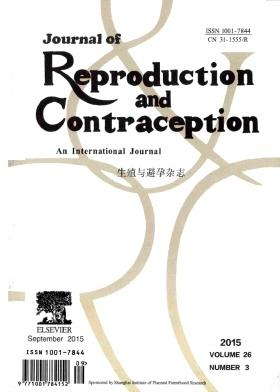Impact of Microbiota on Female Fertility and Gynecological problems
IF 0.7
4区 医学
Q4 OBSTETRICS & GYNECOLOGY
引用次数: 0
Abstract
The uterus was previously considered a sterile environment for embryo implantation and fetal growth; however, evidence showed that different microorganisms in the female reproductive tract may regulate human fertility. The Lactobacillus family is among the most prevalent bacteria in the vagina and uterus of the female reproductive system. Interestingly, a Lactobacillus-dominated (LD) uterine environment is associated with better pregnancy outcomes. Nevertheless, the mechanism by which an LD environment improves pregnancy outcomes is unknown. In the uterus, many commensal bacteria (e.g., Bifidobacterium, Prevotella, Enterobacter, Streptococcus, and Staphylococcus) produce short-chain fatty acids (SCFAs), including acetate, butyrate, and propionate. SCFAs are crucial in modulating cytokine production (e.g., IL-6 and IL-10) and immune cell populations (e.g., T cells and macrophages) during embryo implantation and gynecological diseases. This minireview provides an overview of the roles of Lactobacilli and SCFAs in female fertility and related diseases.微生物群对女性生育和妇科问题的影响
子宫以前被认为是胚胎植入和胎儿生长的无菌环境;然而,有证据表明,女性生殖道中的不同微生物可能调节人类的生育能力。乳杆菌家族是女性生殖系统阴道和子宫中最常见的细菌之一。有趣的是,以乳酸杆菌为主的子宫环境与更好的妊娠结局有关。然而,LD环境改善妊娠结局的机制尚不清楚。在子宫中,许多共生细菌(如双歧杆菌、普雷沃氏菌、肠杆菌、链球菌和葡萄球菌)产生短链脂肪酸(SCFA),包括乙酸盐、丁酸盐和丙酸盐。SCFA在胚胎植入和妇科疾病期间调节细胞因子产生(如IL-6和IL-10)和免疫细胞群(如T细胞和巨噬细胞)至关重要。这篇小综述概述了乳酸杆菌和短链脂肪酸在女性生育和相关疾病中的作用。
本文章由计算机程序翻译,如有差异,请以英文原文为准。
求助全文
约1分钟内获得全文
求助全文
来源期刊

Reproductive and Developmental Medicine
OBSTETRICS & GYNECOLOGY-
CiteScore
1.60
自引率
12.50%
发文量
384
审稿时长
23 weeks
 求助内容:
求助内容: 应助结果提醒方式:
应助结果提醒方式:


